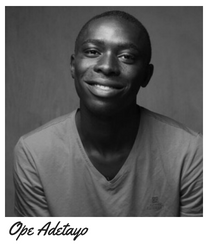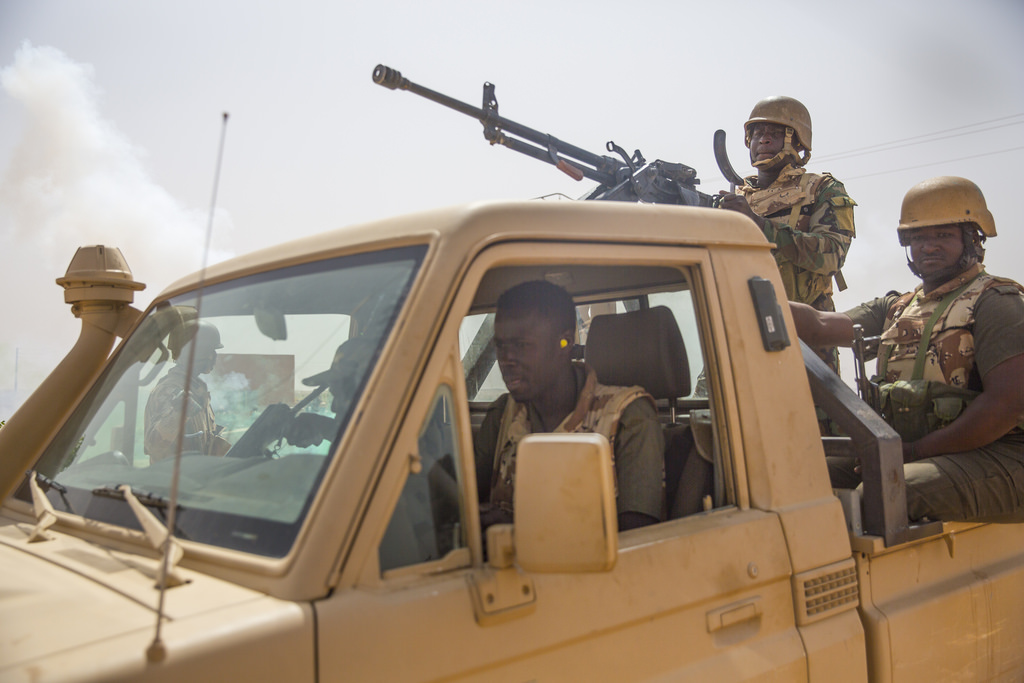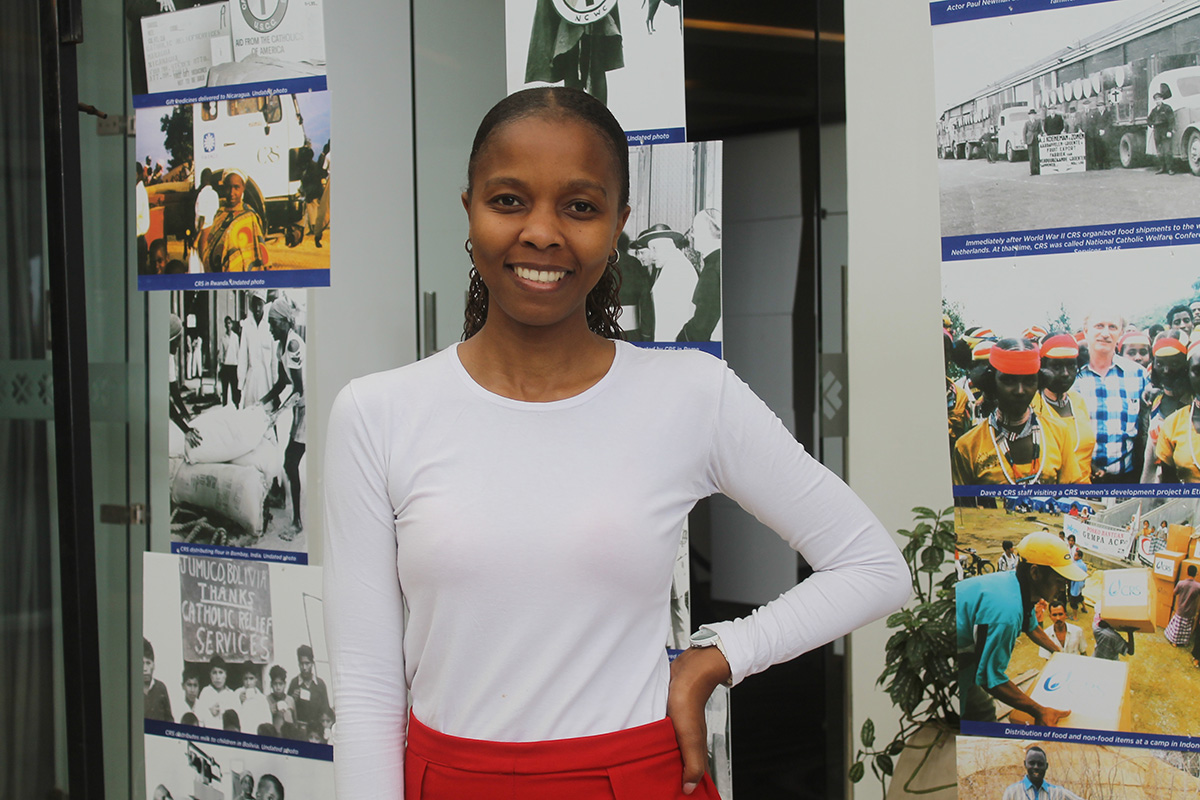“Blood as a metaphor for Nigeria”
May 28 Violent attacks have become distressingly routine, writes Ope Adetayo, 19, a Commonwealth Correspondent from Lagos, Nigeria, who argues that ineffective action has resulted in a developing humanitarian crisis.
Violent attacks have become distressingly routine, writes Ope Adetayo, 19, a Commonwealth Correspondent from Lagos, Nigeria, who argues that ineffective action has resulted in a developing humanitarian crisis.
Blood has become an indelible metaphor for the Nigerian state, as no day passes without the mind-boggling intrusion of gory headlines into our knowledge.
The killings of fellow innocent Nigerians by dangerous elements on the loose have become a daily theme in the reportage of the Nigerian media. These headlines are becoming trite and having less visceral reactions from other places in the country which are currently not victimised by this version of the plague of insecurity that defines the existence of a Nigerian at the moment. It is not exaggeration to state that the country is gradually descending into a state of anomie.
The Nigerian masses are prone to constant deadly attacks from different agencies of terror, but the worrisome underlying issue that characterises these attacks is the appearance of growing apathy by the Nigerian government in the wake of these terrors. This, cumulatively, fuels the widespread terror occasioned against defenceless people.
These killings have to be put to a complete cease by the agencies responsible for ensuring the safety of the lives of the Nigerian citizens. The lives of common Nigerians who do not have the luxury of guaranteed safety matter. And by this fact, this government has to be alive to its responsibility by protecting the people on which its legitimacy resides.
These daily killings weaken the moral authority of the government, and are symptomatic of its inability to ensure national stability. The more damning perspective of these killings is the irrefutable fact that they target specific ethnic groups and at times, religions. It is imperative that global attention is given to this, as it gradually takes a form of ethnic cleansing.
Justice is the foundation on which a progressive society is built. Justice cannot be divorced from the mission of the mechanism that organises a society, if such society wants to be associated with progress and stability. But it is rather unfortunate that this sociological ingredient is non-existent in the making of the Nigerian society, which if left unchecked will contribute immensely to its failure as a state.
How can unremitting killings be answered when the victims are being denied restitution by bringing the perpetrators to justice? How can the leadership of the country turn a deaf ear to the pleas of victims of unjustifiable ceaseless murders?
It cannot be gainsaid that this new wave of killings is morphing into a humanitarian crisis which needs urgent and critical military response from the leadership without partisan favour of politics. It weighs on the conscience of the individual to express grievance at the wanton loss of lives, properties and reasonable assurance in the protection of people’s lives by the security agencies.
Besides, another perspective to this scourge is the symbolic portrayal – in matters of killing and destruction – of the non-acceptance of our ethnic diversity as equal members of a state. This is engendered by the entrenched political poison that feeds ethnic and tribal hostilities towards others who do not belong to the same ethnic or tribal bracket.
Yet these crimes, as grievous as they are, are mostly sidelined and are eventually lost in our collective amnesia as we seem to instinctively forgive and forget criminality. We do not collectively pursue closure for the affected because justice has become elusive for the common man and hijacked by the powers-that-be.
These markers are ones of political and governmental break-down, and are textbook examples of a failed society. A society that refuses to protect its members from constant attacks is failed. A society with a passive leadership is failed. A leadership that is incapable of bringing perpetrators of crimes to book is a metaphor for failure.
Insecurity is an existential reality of anyone living in Nigeria, but it worsens every day in the confounding inertia to act and protect the people. The herdsmen menace comes in second to the Boko Haram insurgency, and this menace continues to define the present government for its handling of matters of national security.
It cannot be much worse for the afflicted areas, truth be told starkly. This is a humanitarian disaster, and government is doing absolutely nothing to checkmate the scourge facing the country. Blood, as I have said earlier, has become an indelible metaphor for the Nigerian state.
Reach me on Twitter @Opeadetayo1
Photo credit: USAFRICOM Flintlock 2018 Training in Agadez, Niger via photopin (license)
…………………………………………………………………………………………………………………
About me: I am Ope Adetayo, an undergraduate of English at the University of Ilorin and a recipient of ‘Gold’ certificate at the 2017 Royal Commonwealth Society Awards for the Commonwealth Essay Competition. I enjoy indelible interest in journalism and literary writing, and am the author of Age and Blood, a play. I am passionate about politics and literature, and they are mediums where I propagate my ideas for a better society.
…………………………………………………………………………………………………………………
Opinions expressed in this article are those of the author and do not necessarily represent the views of the Commonwealth Youth Programme. Articles are published in a spirit of dialogue, respect and understanding. If you disagree, why not submit a response?
To learn more about becoming a Commonwealth Correspondent please visit: http://www.yourcommonwealth.org/submit-articles/




